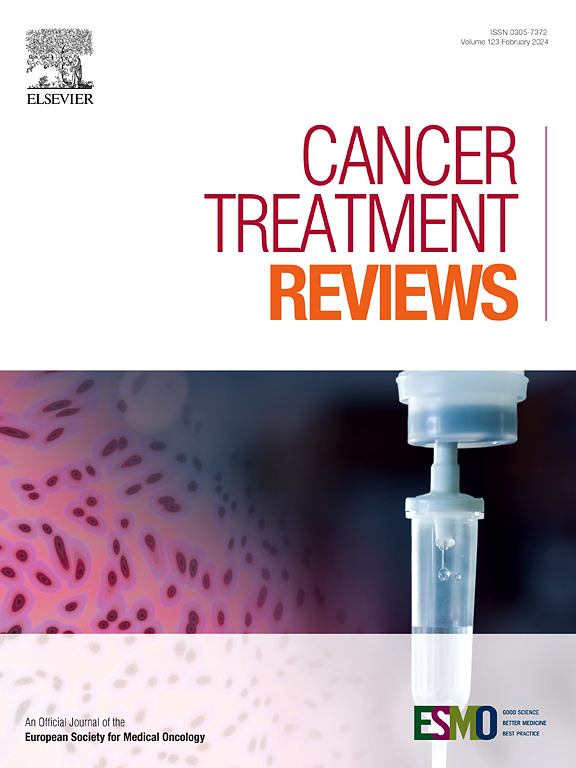Oncotype DX治疗早期乳腺癌的争议
IF 9.6
1区 医学
Q1 ONCOLOGY
引用次数: 0
摘要
多基因预后基因组分析已成为早期乳腺癌(BC)管理的重要工具,提供有助于风险分层的信息,为辅助治疗提供适应风险的决策。临床实践指南建议使用基因组测试(如Oncotype DX®)来细化临床和病理特征提供的预后信息,将癌症划分为危险组并告知辅助治疗策略。然而,这些检测的临床价值(即预后和/或预测性)和适用性因临床环境的差异而异,特别是在关键临床试验中代表性不足的人群中。Oncotype DX®是一种广泛使用的乳腺癌基因组检测方法,具有最高水平的支持证据,为临床实践提供信息。我们的手稿提供了对这种复发评分测定的全面概述,评估了患者群体中的支持证据,并讨论了它们对关键临床试验中代表性不足的患者组治疗决策的影响,其中使用Oncotype DX的证据有限。本文章由计算机程序翻译,如有差异,请以英文原文为准。
Current controversies in the use of Oncotype DX in early breast cancer
Multigene prognostic genomic assays have become essential tools in the management of early breast cancer (BC), providing information that help in risk-stratification, to provide risk-adapted decision-making of adjuvant treatments. Clinical practice guidelines recommend refining the prognostic information provided by clinical and pathology features with the use of genomic tests, such as Oncotype DX®, to classify cancers into risk groups and inform adjuvant treatment strategies. However, the clinical value (i.e., prognostic and/or predictive) and applicability of these assays vary due to differences in the clinical setting, especially in those populations that were underrepresented in pivotal clinical trials. Oncotype DX® is a broadly utilized genomic test for breast cancer, having the highest level of supporting evidence to inform clinical practice. Our manuscript provides a comprehensive overview on this recurrence score assay, evaluates supporting evidence across patient populations, and discusses their impact on treatment decisions in those groups of patients underrepresented in pivotal clinical trials, where evidence is limited with the use of Oncotype DX.
求助全文
通过发布文献求助,成功后即可免费获取论文全文。
去求助
来源期刊

Cancer treatment reviews
医学-肿瘤学
CiteScore
21.40
自引率
0.80%
发文量
109
审稿时长
13 days
期刊介绍:
Cancer Treatment Reviews
Journal Overview:
International journal focused on developments in cancer treatment research
Publishes state-of-the-art, authoritative reviews to keep clinicians and researchers informed
Regular Sections in Each Issue:
Comments on Controversy
Tumor Reviews
Anti-tumor Treatments
New Drugs
Complications of Treatment
General and Supportive Care
Laboratory/Clinic Interface
Submission and Editorial System:
Online submission and editorial system for Cancer Treatment Reviews
 求助内容:
求助内容: 应助结果提醒方式:
应助结果提醒方式:


